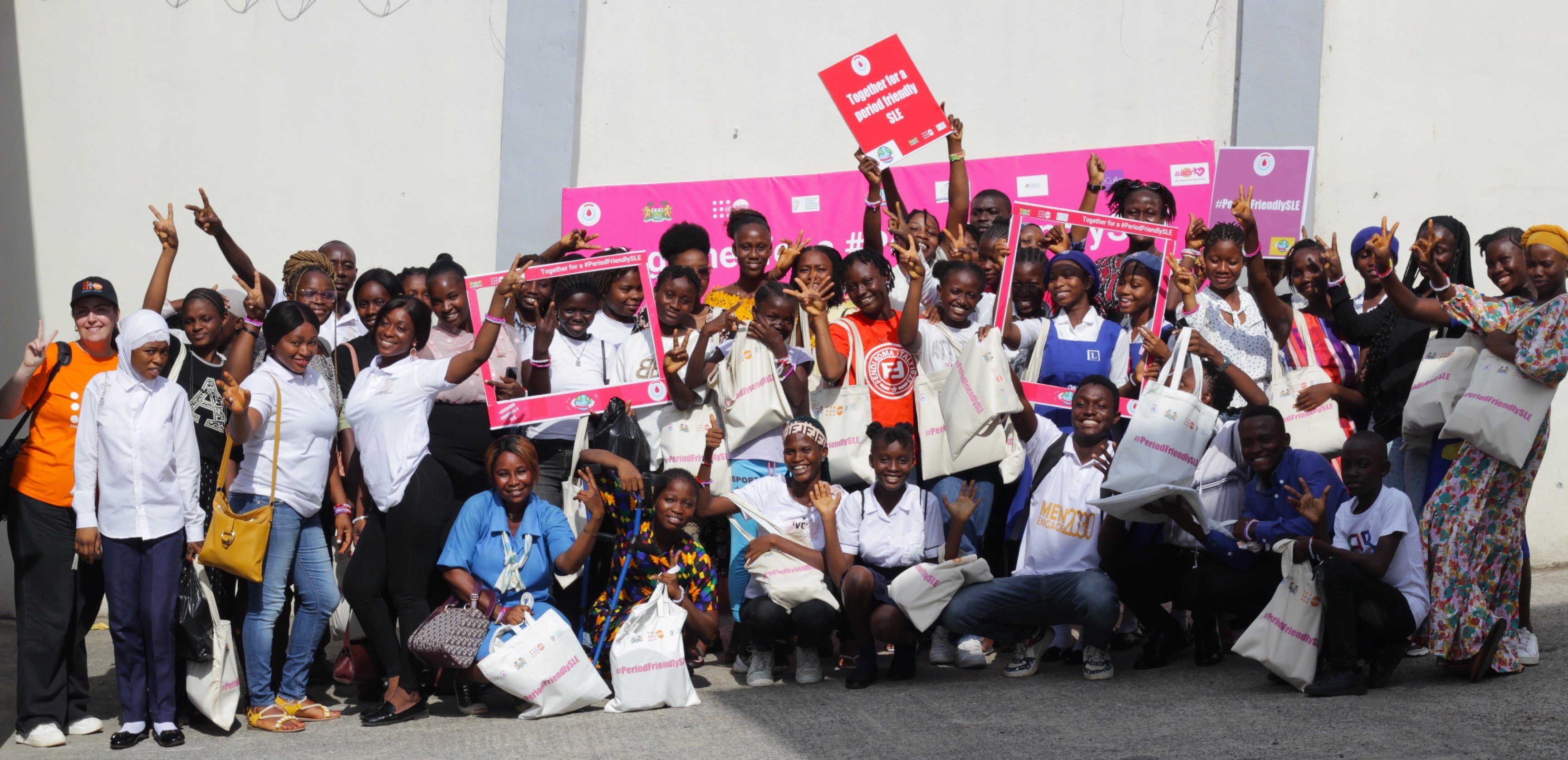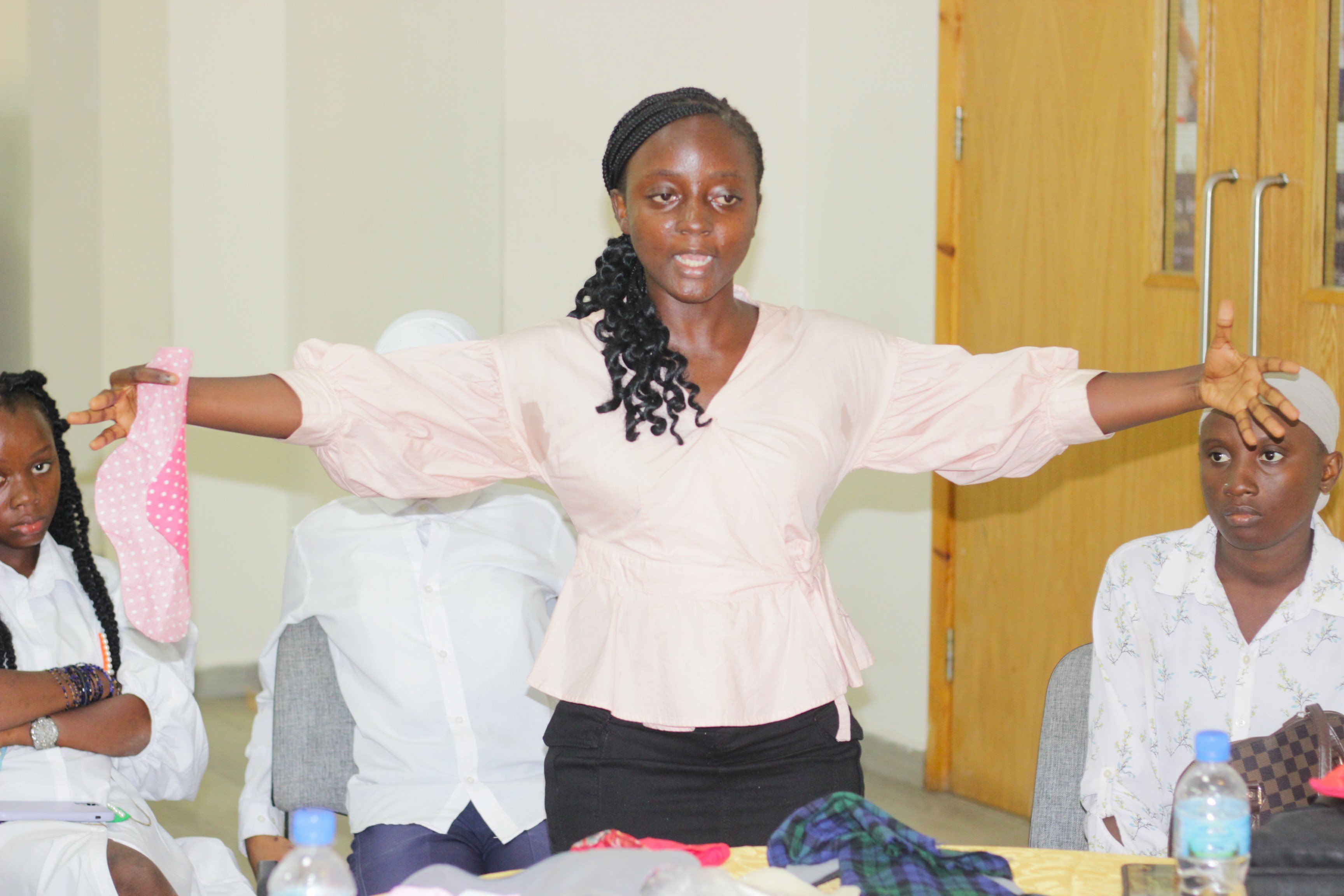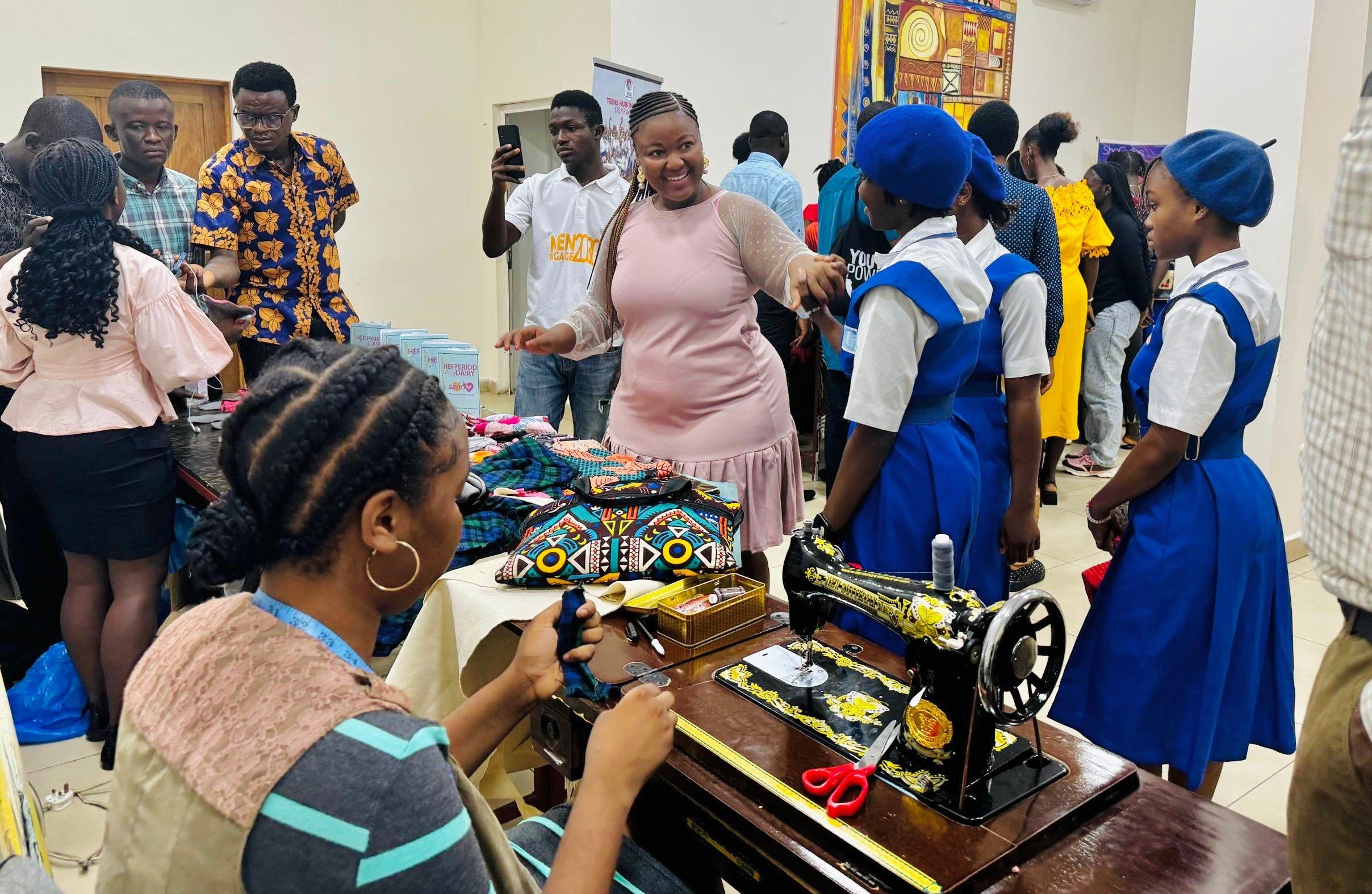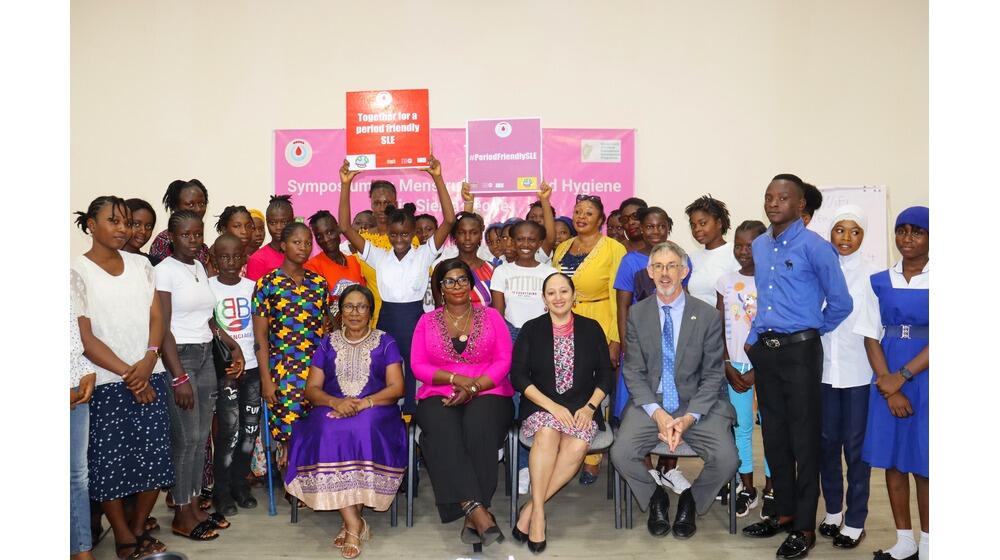Freetown, Sierra Leone, 28 May 2024 – To mark the 10th anniversary of Menstrual Hygiene Day on 28 May, the United Nations Population Fund (UNFPA) partnered with the Ministry of Gender and Children’s Affairs, the Ministry of Basic and Senior Secondary Education, Irish Aid, and a coalition of women- and girl-led organizations, to convene a symposium on menstrual health and hygiene.
Menstrual health is not just a health issue, it is also a fundamental human rights concern. Every month, nearly one-quarter of the global population, around 2 billion people, menstruate. However, lack of access to reliable menstrual hygiene products, and to suitable and safe sanitation and hygiene facilities places a heavy burden on women and girls and adds to a sense of anxiety and shame. As a result, girls and women can face isolation and exclusion from social life, education and employment, in addition to being exposed to health risks in the absence of hygienic products and facilities. This reality feeds gender and social inequalities and perpetuates poverty, especially for women and girls who face vulnerabilities such as living with a disability.
Held in Freetown, under the theme "Together for a Period Friendly Sierra Leone”, the symposium brought together a diverse group of stakeholders to review the strides made in menstrual health and hygiene over the past decade and to identify the gaps that still need to be addressed to ensure that every girl and woman in Sierra Leone can manage their menstruation with dignity.

Addressing the symposium as the keynote speaker, Hon. Isata Mahoi, Minister of Gender and Children’s Affairs, emphasized that "menstrual health and hygiene are integral to the realization of girls' and women's rights.". She added that "in order to manage their menstrual experiences safely and with dignity, it is imperative that girls and women have access to reliable, accurate, and comprehensive information, adequate sanitation facilities, and menstrual products of their choice, in schools and family environments."
Nadia Rasheed, the UNFPA Country Representative highlighted that "despite being a normal and natural part of life for half the population, menstruation continues to be associated with stigma and shame for far too many women and girls around the world.” She commended efforts led by the government, the First Lady of Sierra Leone, young women, and development partners to raise awareness, tackle stigma, and expand access to free sanitary products in schools, health facilities and other settings.
Mrs. Emily Gogra, Deputy Minister of Basic and Senior Secondary Education, underscored that "menstrual health is a significant issue for schoolgirls, presenting physical, social, and emotional challenges.” She added that an estimated “20 percent of girls in Sierra Leone do not attend school during their menstrual periods,’’ stressing the importance of working together to ensure all girls have access to education and menstrual hygiene.
Speaking at the symposium, H.E. Aidan Fitzpatrick, Ambassador of Ireland, reaffirmed Ireland’s commitment to advancing gender equality and the empowerment of women and girls , stating that menstrual health and hygiene is a fundamental aspect of human rights and dignity. He added, "our vision is a Sierra Leone where every girl can access menstrual health and hygiene products, education, and infrastructure to manage their menstruation effectively and with dignity.’’

Mary Julius, an adolescent girls’ representative from the Girls Advocacy and Development Network (GADNet), raised concerns that girls are missing school because they are unable to afford menstrual hygiene products. She emphasized that ‘menstrual hygiene is a crucial aspect of our health and well-being, and access to sanitary products is a fundamental right,’’adding that "thanks to UNFPA support, GADNET has organized a series of training sessions where girls learn to make reusable pads, empowering us with essential skills."

The symposium provided a platform for strategic reflection and knowledge sharing among various stakeholders from government, UN agencies, development partners, women and girl-led organizations, CSOs, students, youth leaders, people living with disabilities and the media. The event also featured an exhibition space where various organizations showcased their work on menstrual health and hygiene, and provided skills demonstration sessions to teach symposium participants how to make reusable pads and use menstrual beads and diaries to track their monthly periods, among other initiatives.
About UNFPA:
UNFPA is the United Nations’ sexual and reproductive health agency. Our mission is to deliver a world where every pregnancy is wanted, every childbirth is safe and every young person's potential is fulfilled. UNFPA calls for urgent action to achieve universal access to sexual and reproductive health, realize reproductive rights for all, and accelerate the implementation of the Programme of Action of the International Conference on Population and Development.
Media contact: Islander Kabia | Communications Unit | UNFPA Sierra Leone | ikabia@unfpa.org


